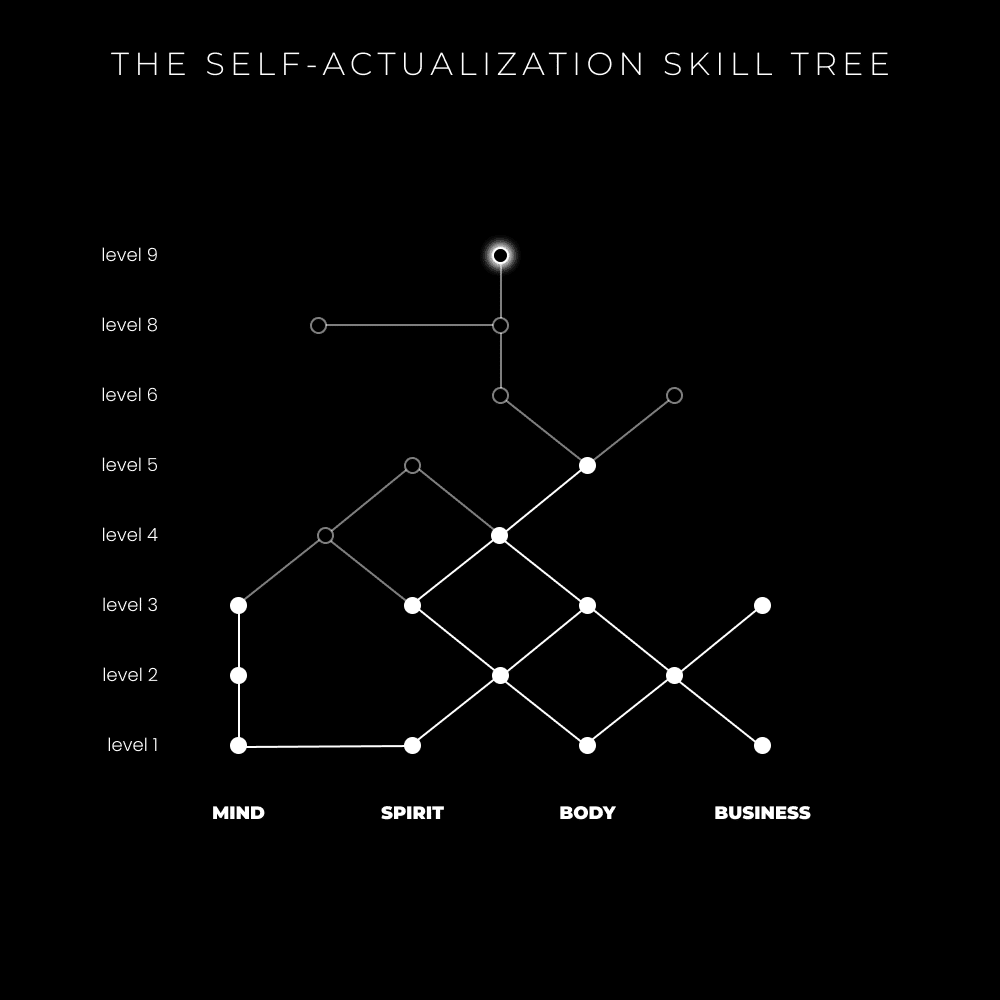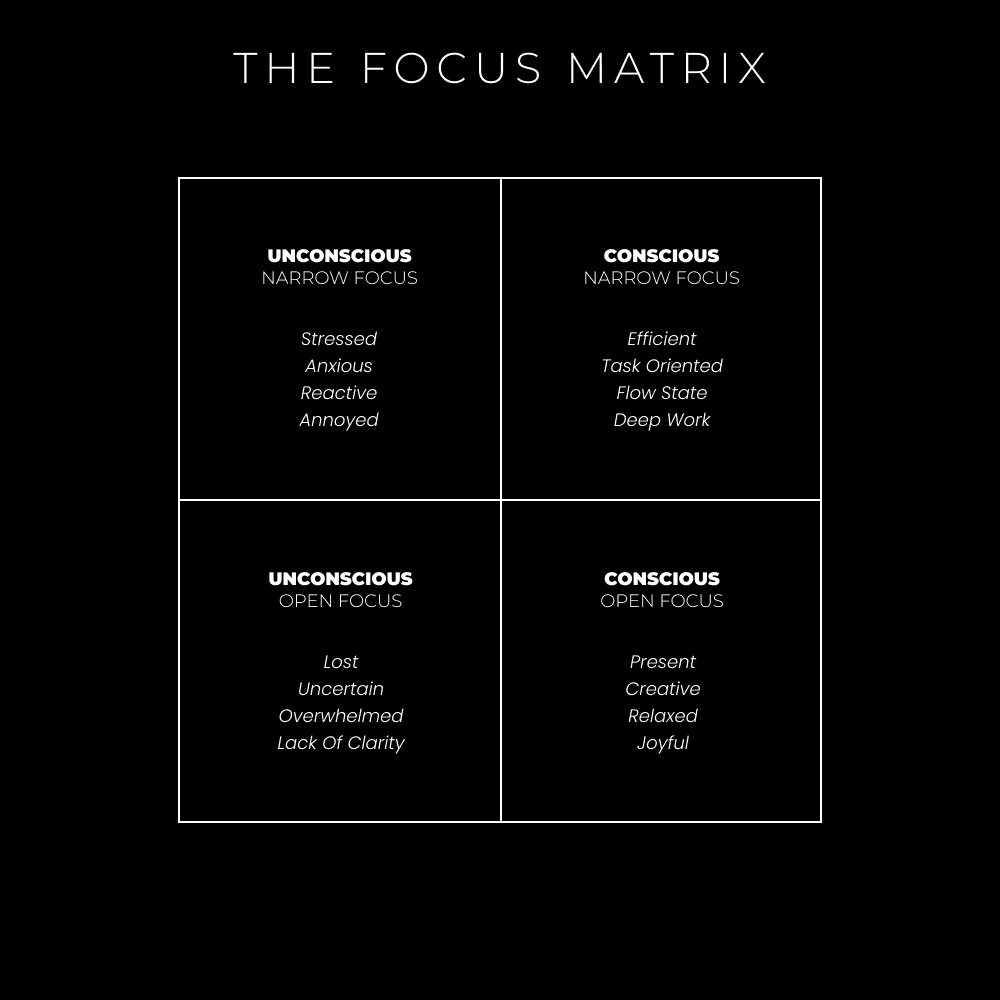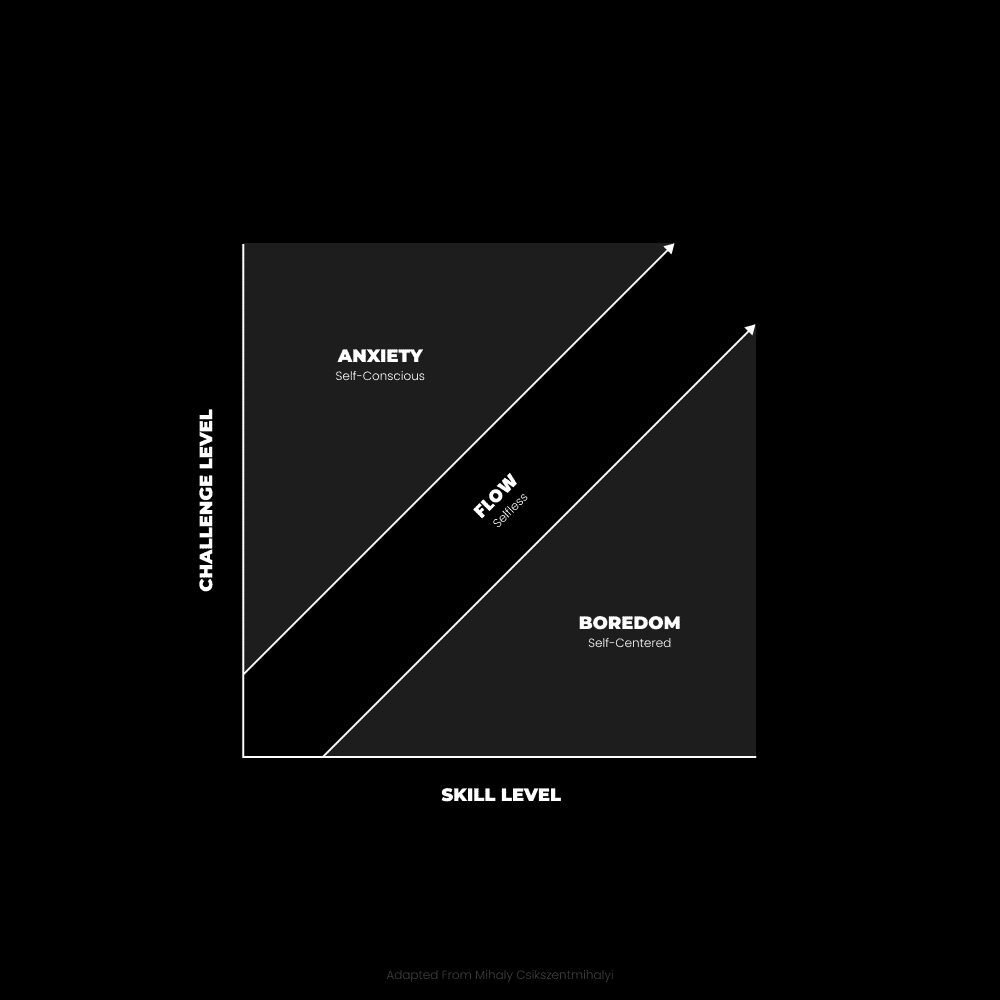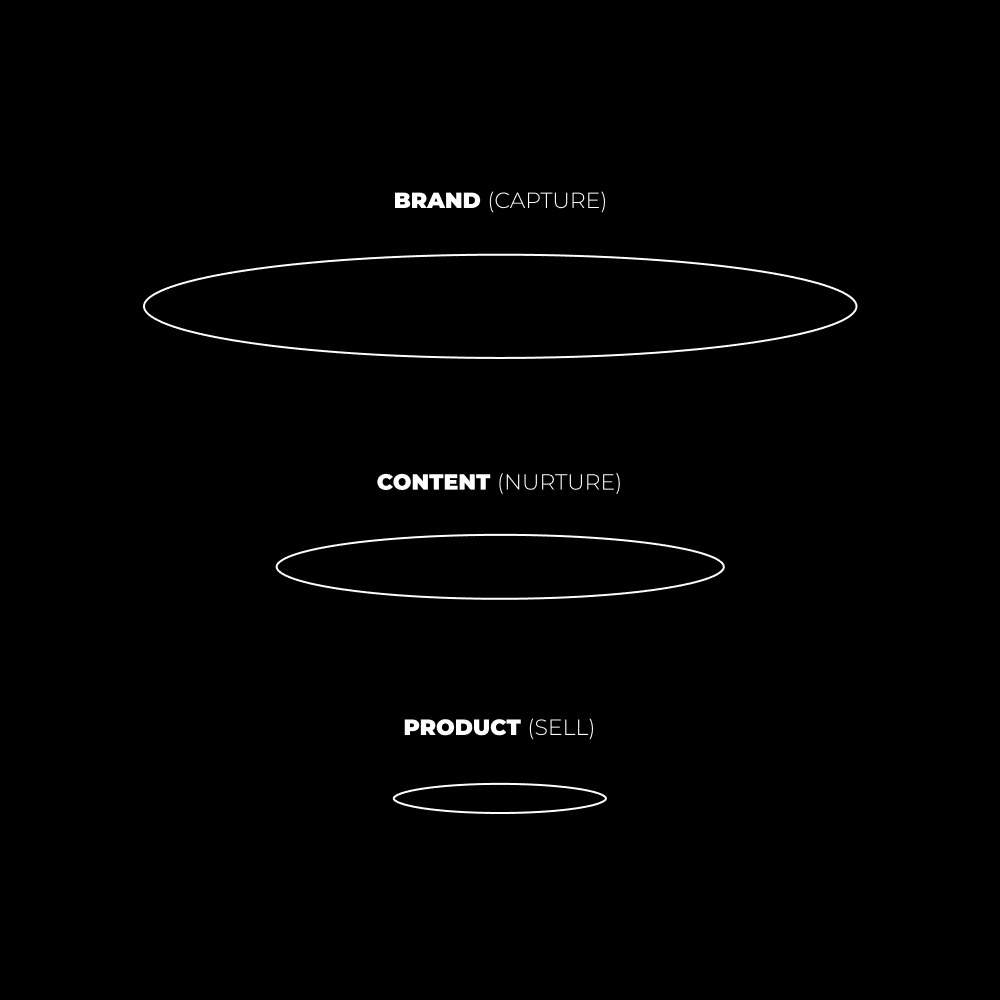People don’t believe me when I tell them I work less than 4 hours a day.
Especially at this point in my life where I’ve been working 1-2 hours a day max.
How?
1) I’ve always focused on eliminating the things I don’t like in my life.
I didn’t like long client calls or hosting podcasts, so I stopped doing them.
Those alone gave me back hours each week of my time.
Of course, I couldn’t do it immediately.
I had to create a solution to my own problems.
Client work served its purpose until I realized personal branding was a way out. So I made that my priority project each morning for a year.
(By the way, if you can’t tell, this is mainly for internet entrepreneurs and creatives.)
2) I’ve always focused on the highest leverage activities possible.
Freelance and consulting work is a great starting point but demands a lot of time.
If you want more freedom, you need a product that can sell in your sleep, without personal effort.
With time I transitioned out of client work and used my results in brand advising to create a digital product stack.
The time-to-money ratio must decrease as you grow.
Next, I realized that writing was my ideal traffic generation method.
I write for 1-2 hours every single morning.
Yes, even on weekends.
No, I don’t want to do anything else with that time.
My writing gets repurposed to every single social media platform so that my audience continues to grow.
This is where most people fail.
They take courses, which illustrate exactly what the high-leverage tasks are, but then do the exact opposite.
When they ask, “Dan, why am I not getting results?”
I ask what they are doing on a daily, focused basis and it is close to nothing.
They are not performing the actions that get results on a daily basis.
They are procrastinating for 3 hours and doing things that don’t matter for another 8.
Results take time to build momentum and most people aren’t patient.
3) People still don’t realize the compounding nature of readership growth.
Business, online or offline, requires people and a product.
People come from ads, geographic location (for physical businesses), manual outreach like cold calls or email, or growing a readership through content creation in the new digital society.
Most businesses spend hours each day attempting to acquire customers.
They neglect the power of social media.
My creator philosophy:
— DAN KOE (@thedankoe) June 10, 2023
1) Go large and broad so you can talk about whatever you want.
2) Your newsletter, products, and services create beginner to advanced niche sub-audiences.
A map that guides people through the hierarchy of needs as you self-actualize.
My point being:
If a brand with 50,000 followers can make $50,000 a month (yes, this is the low end if you know what you are doing)…
I can make that much with one-tenth of the effort if I have 500,000 followers.
Now imagine if I have 2 million (which I do), I can make that much in an hour a week.
In other words:
I can make 10x the amount of most people because of the focus I’ve invested over the years. And I don’t care to work longer for the sake of status and fitting in with other entrepreneurs.
Me writing one tweet is the same as a beginner writing 10,000 (both in terms of high performing ideas due to practice and the spread of that tweet).
I know an entrepreneur who works 14 hrs a day
— Tej Dosa (@ComedicBizman) June 9, 2023
And is stuck living in the basement
I know an entrepreneur who works 5 hrs a day
And has built/sold 3 companies for $100m+ each
The value isn't in how many hours you work
But where you focus your attention/awareness/consciousness
No other traffic generation holds that power.
The harsh reality is that most people don’t stick it out long enough. They never reach the point where they can get a month’s worth of results in one day.
Most people aren’t increasing their skill level, they are increasing the amount of time they spend at their current skill level.
I teach this holistic business model in my Digital Economics Masterclass to turn yourself into a business.
Now, why do I only work 4 hours a day?
It seems like more and more young entrepreneurs boast about working all the time.
12-14 hour days.
There’s nothing wrong with this, and I’m sure it can be rather enjoyable. Entrepreneurship is a game. A very fun game at that.
But, there’s a glaring problem with that lifestyle.
Overwork is the antagonist of holistic development, and holism is the catalyst to exponential growth toward self-transcendence.
People wonder why I work 3-4 hours a day (on an average day, nothing is permanent)…
I wonder why they don’t if they value self-actualization.
If you are so focused on something as neutral as money, how do you have time for creativity, relationships, and health?
Think of a talent tree in a video game.

You won’t have access to higher levels of skill development if you only focus on one path.
You can push to a certain level in business, but to reach new heights, you have to reach an equal level of development in health, relationships, and cognitive development.
To my point above about getting 1 month of results in 1 day, this is close to impossible if you are only focused on business.
“Focusing on one thing” requires you to focus on a multitude of things to do that one thing better. It’s counterintuitive as most good things in life are.
The Psychology (And Futility) Of 9-5 Jobs
Let’s open this can of worms by making a hard distinction between work and rest.
We will classify work as “productivity mode” and rest as “creativity mode.”
Both are states of mind that are determined by what, how, and why your attention is focused on what it is.

Productivity Mode
This is a narrow focused state of attention.
You are fixated on solving a problem that a task presents.
It is almost always accompanied by a sense of stress or pressure to perform.
In psychology, this is best illustrated by the Task Positive Network in the brain that, “is active during attention-demanding tasks and includes our conscious attention towards the external environment.”
Creativity Mode
This is an open focused state of attention.
You do not fixate on a stress-related task, but you can still be focused on a task.
You are not actively paying attention.
This is why you feel so creative in the shower, at the gym, on a walk, or laying out in the sun.
In psychology, this is best illustrated by the Default Mode Network that activates when we shift from outward to inward-focused cognition.
The Problem
Overworkers don’t realize that habits are not only what you do, but who you are.
A state of mind, like productivity mode, can become conditioned into your mind.
You can live in that narrow and stressful perspective in a way that silently wreaks havoc on your health.
And that’s just the thing…
You don’t care.
Why?
Because that’s all you know.
You become more egotistical and selfish simply because you can’t fathom a better way of living.
Your current level of awareness/consciousness doesn’t allow you to grasp at the higher rung of the ladder because it’s clouded by fog.
Your life is so mechanical and “known” that it never crosses your mind that there is an unknown that can benefit you.
Your identity is threatened at the thought that you could see more progress while working 3-4 hours a day. And you’re fearful of the unknown lifestyle you would be thrown into.
So the ego constricts its grip on your way of living and you keep on doing what you were doing.
The Evolution
I’m not saying that productivity mode is bad.
In fact, it’s one of the most enjoyable states of mind to be in.
Secure, certain, and focused so that negative thoughts don’t replicate in your mind.
That’s not the problem.
The problem is never breaking out of that state to reflect on your past and re-aim toward your future.
You never zoom out to see where you are going so you can zoom in and make better choices.
Most people are zoomed in for life. They wake up one day wondering where they went wrong.
Zoom out.
Identify a big goal to gain vision.
Perceive your daily choices from the lens of that goal.
Most hard-working entrepreneurs would scoff at the fact that they are the exact same as 9-5ers, but they are.
The best way to explain this is with the skill:challenge match:

Challenge the key to maximum enjoyment (flow state).
I talk about this in Life Is A Video Game.
Challenge narrows the mind on a problem standing in the way of a meaningful goal, which is the driver of evolution.
We can all feel “the pull” towards our highest version.
This is evolution calling you to live in accordance with nature.
What people don’t realize is this is an ever-evolving way of life.
Stagnation = death.
In order to reach new levels of challenge to focus your attention you must:
- Never stop learning to stack new skills and perspectives
- Increase the complexity of your character to be able to even perceive the challenge
- Solve deeper problems in your life so you don’t get trapped in the superficial
This is my gripe with most 9-5s.
Yes, some allow you to progress, but it is a slow grind with an inevitable cap.
I see 9-5 jobs as a stepping stone.
They breed complacency and are dangerous for your psyche.
Challenge is what makes life fun and interesting.
If you halt your personal evolution by never pursuing something more, you lose purpose and fulfillment.
Now, of course, people have their own goals.
People can achieve a sustained level of happiness at a lifelong 9-5 and mindfulness methods.
But I am not speaking to those people.
I am speaking to you.
A person who clearly has a thirst for more.
An innate curiosity to discover your potential.
Or else you wouldn’t be reading this.
Creativity & Leverage
If the work doesn’t require creativity, delegate it, automate it, or leave it.
— Naval (@naval) September 30, 2020
Creativity is the balance to productivity.
A constant need to be productive leads to a constant level of stress.
A constant level of stress leads to surface-level living. You don’t even realize there is depth to this life. You have difficulty opening your mind beyond work-related tasks.
This impacts every other area of your life.
- Your relationship with your friends and loved ones.
- Your ability to recover from health-related activities.
- Your mental capacity and development (which dictates your future level of true wealth).
4-hour workdays, singular focus, and meaningful work are becoming the norm in small pockets of the internet, and for good reason.
Ancient Romans and Greeks, Steve Jobs, Charles Darwin, and an ever-growing list of visionaries, strategists, and innovators attribute their success to surprisingly low work times accompanied by an abundance of restful activities like long walks.
When we see someone with a respectable body of creative work, we would expect them to work long hours, obsessing into the night about the details of their next piece.
Instead, we see the opposite.
Like Darwin arriving at his study by eight after his morning walk and breakfast.
He would work for an hour and a half, take a break to read the mail and write letters, then return to more serious work where he conducted his experiments.
By noon Darwin would stop his work day and head out on a long walk.
After reading and answering a few more letters he would take a nap, take another walk, and return to his study for another work block.
3-5 hours of work paired with active rest seems to be the sweet spot for most impactful creatives.
Writers from multiple domains like Hemingway, Tarantino, and Ogilvy would spend the majority of their days lounging by the pool, talking to beautiful women, and doing everything aside from what they deemed work.
They gave room for the creative emergence of ideas that fueled the impact of their work.
If they can change culture and business with their methods, why can’t corporate workaholics do the same?
If you’re wondering “how,” to do this, I’ve written about it extensively before.
Here are my 10 commandments of the 4-hour workday and my deep work routine.
The New Currency
How do you make money?
First, you need attention.
Second, you need a product or service to direct that attention to.
Third, you need to understand the process of guiding attention throughout that journey.
Some people may reach your product and buy randomly.
In most cases, that is not sustainable.
You must create and understand every single touchpoint that a user can come in contact with on your brand.
Some call this a “funnel,” but that has negative connotations associated with shady marketers.
My funnel is simple:
- Write a big-idea-centric newsletter every week.
- Write 3 punchy and memorable tweets every day.
- Repurpose them to all platforms (my newsletter is my YouTube script, I teach you how I write them here).

You must capture, hold, and nurture their attention with ideas.
Ideas are the new currency.
Modern success is mental warfare.
Creativity, rest, and short work hours are the catalyst.
This is something I realized late in my journey.
Here’s what you need to focus on:
If you don’t prioritize depth, you will not be remembered.
Your authority is determined by how much attention you hold throughout your lifetime.
A tweet may hold 10 seconds of attention.
A book holds 5-6 hours of attention.
You become what you consume, and you mold those who read your work.
Books, newsletters, podcasts, and YouTube videos.
These are the foundation of your brand.
This is how you nurture an audience without needing pushy sales tactics and direct response marketing.
When you prioritize depth, understanding, and novel perspectives you build trust and equity with your audience that you can cash in when it’s time to promote.
Who do you remember?
The person on Twitter with a tweet you liked?
Or the author that changed how you move in the world?
I don’t remember everything I read from Eckhart Tolle, but I will spread his work to anyone curious about who impacted my life the most.
He makes money off of me because he lives rent-free in my head.
The Fill-Empty-Use Framework For A Holistic Lifestyle
Fill your brain in the afternoons with books, learning, and socialization
— DAN KOE (@thedankoe) November 5, 2021
Empty your brain before bed with journaling, planning, and meditation
Use your brain in the morning with creation, output, and focus
In the afternoons, fill your mind through:
Curiosity pursuit to collect kernels of truth to integrate into your worldview.
Skill acquisition to increase your value in the marketplace that continues to change. If you stop learning, you die.
Intellectual conversation so you don’t get trapped in a narrow perspective. You need to test your ideas with an open mind. Avoid debate and argument.
All of which can be used as fuel for your creative work.
In the afternoons, empty your mind through:
Self-reflection to note mistakes, lessons, and directions that you would have missed otherwise.
Reality mapping (or documenting what you learned for the day and how it connects to other ideas) so you can create something of value.
Spiritual connection so you don’t get trapped in “doing” mode. Embrace “being” to balance out the stress.
In the morning, use your mind through:
Focused work to channel your discoveries and practice your craft.
Priority projects to have direction for your work. This is the only way to produce something that you can pass off to other people (and get paid for doing so).
More on priority projects here: Change Your Life In 6 Months (My Deep Work Routine).
Bursts of intensity so you feel a sense of accomplishment first thing in the morning. You can be at ease during your rest knowing that you knocked out what needs to be done.
Ending it here.
Enjoy the rest of your week.
– Dan Koe



